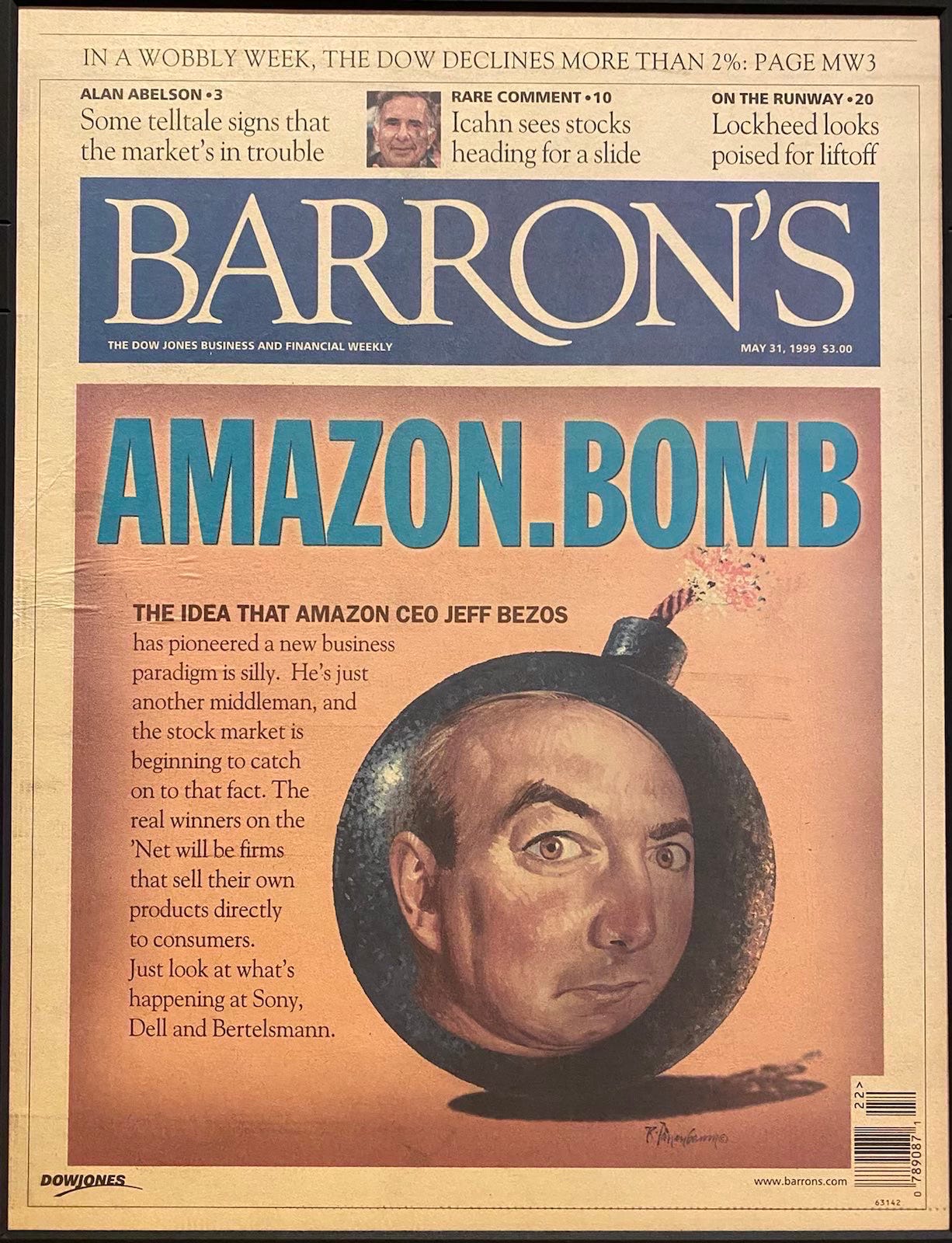Optimism
and its relationship with luck
If you’re an engineer looking for a new career opportunity, apply to attend one of our in-person startup showcases in SF or NY where you’ll meet founders of the most promising, high growth startups in our network.
"Pessimists sound smart. Optimists make money." -Nat Friedman
I’ve been getting some feedback that my writing is overly optimistic about startups. “DK, you’re wildly optimistic about startups because you got lucky and joined Google early.” It’s true I’ve had a good bit of luck in life. But I’d attribute my luck primarily to my optimism. Though I find it impossible to decouple the feedback loops between the two.
I joined Google in 2003. At the time the consensus view on private technology companies was pessimistic. A lot of investors/founders/engineers were still reeling from the dotcom crash. Many people assumed everything on the Internet was still all hype and no substance (remember “Amazon.Bomb”?). Everyone questioned how a free search engine could be a viable business — even my parents. Google was happy to keep the success of the business quiet for as long as possible. So why was I optimistic when the consensus view was pessimism?
Sources of my optimism:
Witnessing massive technological progress over decades. Some of my earliest childhood memories are playing with networked computers. My father was obsessed with computers. We got a new family computer every year or 2 from the early 1980s (just as I was learning to walk) until I moved out for college in the 1990s. We started as a few hobbyists hanging out on local BBSs. We moved to proprietary commercial networks like Compuserve, Prodigy, and AOL. Finally we reached the vast expanse of the open Internet with Mosaic. While the earliest networks were raw by today’s standards (e.g. acoustic coupler modems, text only consoles), I got a front row seat to witnessing the emergence of this globally networked hivemind. And now all of human knowledge is available 24/7 in our pockets, connecting the majority of humanity. This arc has permanently shaped my outlook on what’s possible.
Observing problems, imagining solutions. I see problems every day. But I have yet to find a single problem that seems impossible to solve. I just find it an indefensible position that “that’ll never work”. Under the right conditions, human ingenuity always triumphs. If you believe this, the questions of “what’s the right path?” and “why now?” are the ones worth debating.
Understanding asymmetric environments. Technology takes what was once expensive and rare and makes it cheaper and more broadly accessible to everyone. When investing your time or money, the most you can lose is what you put in, but the most you can gain is practically unlimited. Once you understand asymmetric environments, optimism seems like a rational approach. Rather than saying, “this will never work” try starting with “how big could this be if it actually did work?” Much of the time it won’t work. But the times it does work… boy, I can’t think of anything more thrilling (and profitable!) to help build. And having even a small role in a winner can pay for the failures many times over. Google was an early example of this, but certainly not the last. People who angel invested $5000 in Uber’s seed round made $25 million.
Cultivate Optimism
Can you proactively cultivate optimism? Sure! I do it every day. A few ideas to get started:
Hang out with optimistic people. Founders tend to be very optimistic so that could be a good place to start. See how you can help people achieve what they’re aiming at.
Play with new technology tools. Withhold judgment for a bit. The dismissals are easy. Focus on seeing the possibilities. Figure out what could go right. Write down and share your thoughts on how interesting something might be if it all goes right. Your writing will connect you with other like-minded, optimistic people.
Exercise lateral thinking. Relieve yourself of the responsibility of actually building the solution. Play with crazy ideas for fun. Give yourself creative freedom to imagine radically different approaches. When someone says “that’s how it’s always been done” be skeptical. “Has something changed recently that might adjust our assumptions?” Be blind to the crushing pain of needing to deliver a viable solution. Entertain wild “what ifs” to get your creativity flowing!
Let Your Taste Guide You
You don’t have to become an unabashed cheerleader for “The Current Thing” — everyone is using their own filters to allocate their limited resources of time/attention. There are plenty of popular technology narratives which I don’t see as viable. I just filter my world for the stuff I do like. Focus your time, attention, and optimism on the future you want -- and believe -- should exist.




I love this sentiment: "Rather than saying, 'this will never work' try starting with 'how big could this be if it actually did work?'"
Do you think this reorientation is attainable for everyone? The more I work with other adults, the more I wonder whether having an optimistic worldview is primarily a fixed characteristic.